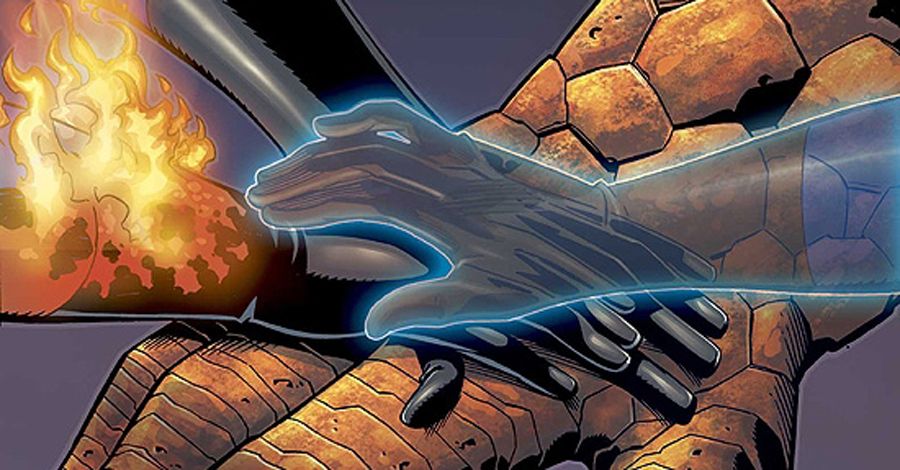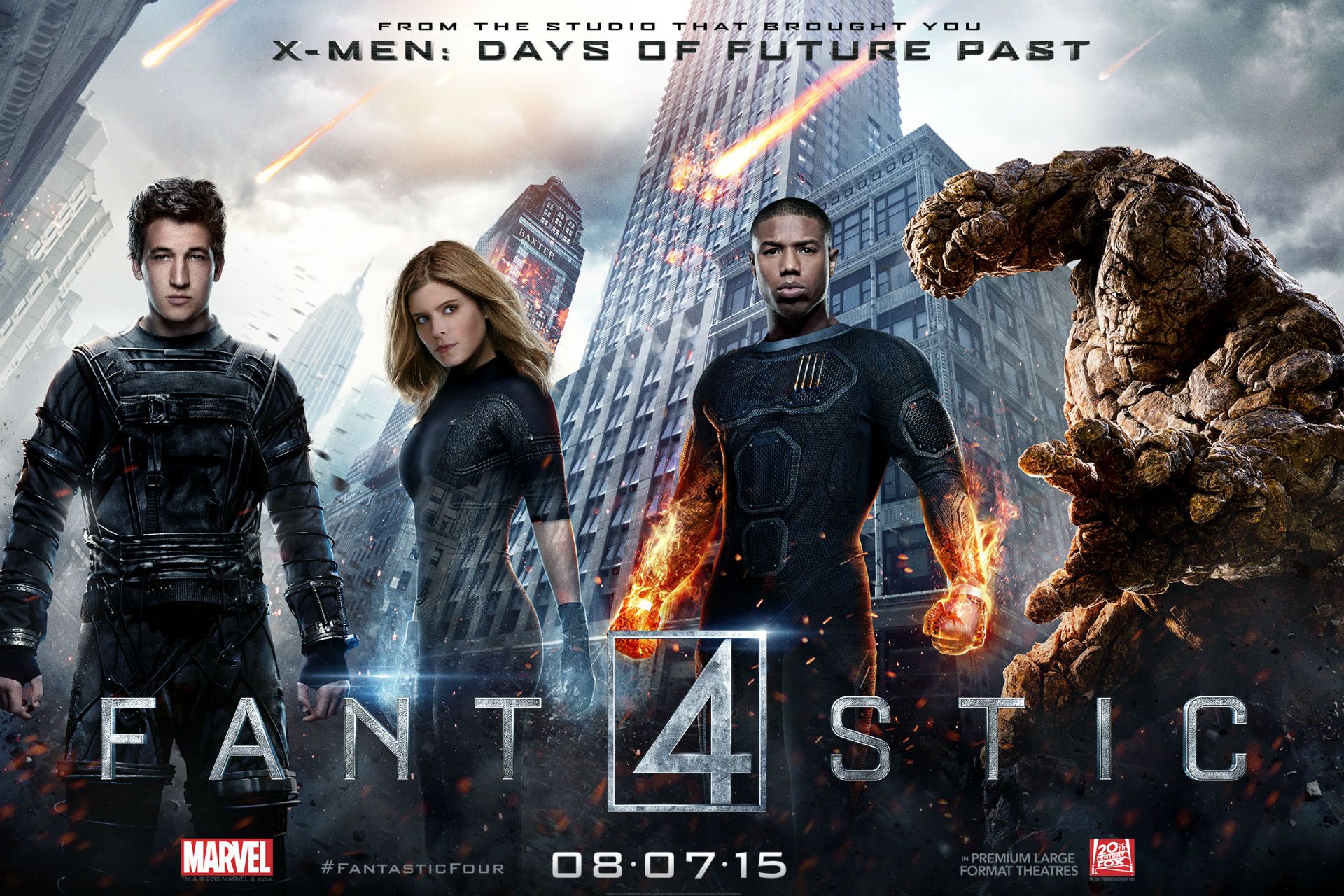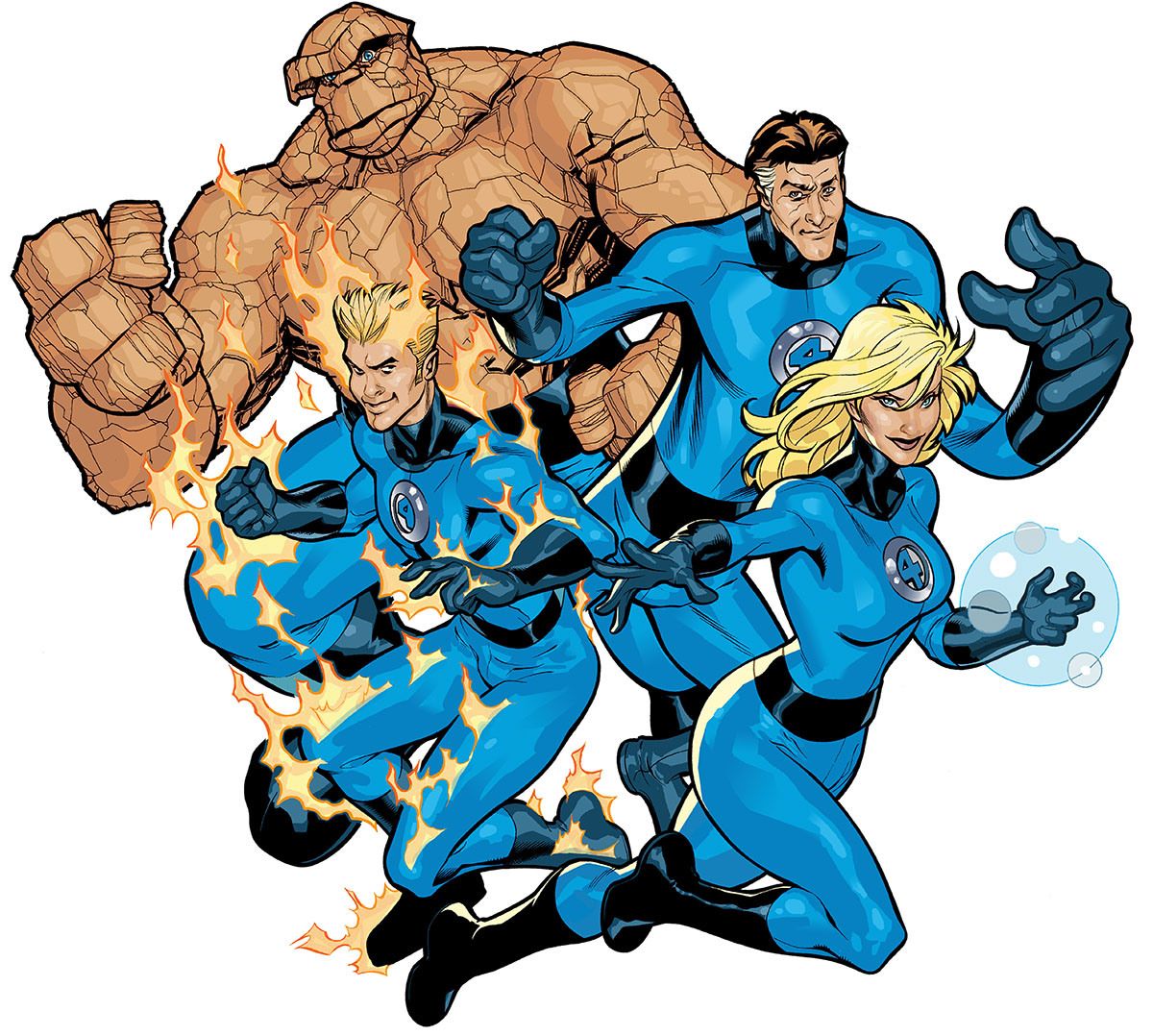In a way, it's may be a good thing the Fantastic Four movie is doing so poorly, because now we get to talk about Marvel's First Family.
For some reason, interest goes up whenever the Fantastic Four are in dire peril, whether that's imminent death or cancellation. Most recent writers have chosen to threaten the team's existence to generate interest, with mixed results: James Robinson came on under "The End of Fantastic Four"; Matt Fraction said the radiation that gave them their powers would kill them; Jonathan Hickman killed Johnny Storm, then rebranded what was left; and that's just in the past five years.
It seems every time the team appears in danger of falling apart, or losing its title, is precisely when fans and critics like myself haul out the tributes and care about the Fantastic Four's place within Marvel history. There's an image we all have of what the Fantastic Four is and what it means in our heads. It's just that putting that idea onto paper and sold for $3.99 is a difficult journey.
As much as I hate to admit it, the current release of Fantastic Four is probably the most we're going to see of Marvel's First Family for a while. Sad, really, considering how much of the movie's faults can be blamed on a production nightmare and the fact that the Fantastic Four on screen bears little resemblance to the traditional FF. The latter is generally a good thing; the Fantastic Four's initial concept is a hard sell to modern audiences. A guy, his college roommate, his girlfriend and his girlfriend's brother is such a weird grouping -- not exactly a comfortable sitcom family, but an unlikely set of zombie survivors. Plus, these characters are all (or at least should be) older than the usual origin story we're used to. Teens acquiring superpowers and learning how to use them in just the right coming-of-age metaphor. When adults get powers, it doesn't sit right. When it comes to film, you have to start at the beginning for general audiences, and the Fantastic Four's beginning is just ... weird.
Heck, do comic fans even like the Fantastic Four anymore? Sure, we say we do because of their importance within the Marvel Universe, but again, that concept is a hard sell to modern readers. Sales go up when major change is promised, like death or dissolution; we want to see them broken up. Their origin, once again, is very corny and doesn't have a clear purpose set down like other heroes. Spider-Man gets powers and learns about great responsibility. The X-Men gain powers and fight for a world that fears them. The Fantastic Four get powers and keep doing the science they would have done without them.
A big nail in the FF coffin is that their arch-nemesis overshadows the entire team. Which would you rather read about, the First Family or an egomaniacal dictator who uses magic and science in a bid to rule the world (or, recently, become God)? Like Batman, their major foe can be far more interesting than they are.What we imagine when we think of heroes is important to the longevity of comics. It's actually pretty cool that you can ask a group of people what their favorite comic is and have a dozen different ideas all from the same answer. Fans can say Iron Man and mean the Layton-era Tony Stark, the Civil War-era Tony Stark, or Robert Downey Jr. All of those answers are Iron Man. Fans can say X-Men and mean a plethora of team rosters and story styles; do you like the '90s X-Men? The space-faring X-Men? The school-drama X-Men? The outcast-metaphor X-Men? All of these components are the X-Men and can be included or excluded with the same result.
In the best situation, all those people agree that their answers are correct (i.e. no one starts a fight over which mutant roster is the real X-Men). If one fan likes the '80s X-Men and another the Morrison-era X-Men and doesn't care for Cyclops, they both still like the X-Men and can count it as their favorite book. That's because with the best concepts, the details become irrelevant to the higher ideal at their core. There are essential traits to Iron Man that make him an easy character to develop for television, film and comics, no matter how the details differ. The X-Men movie has an entirely different roster than the X-Men comics published at the time, but fans so loved the core concept, they were open to the idea of both mediums.
A tree in the fall with dead leaves and a tree in the spring with new leaves, both are tress, no matter the details of their form. An X-Man by another other name would be just as angst-ridden and mutated. There are essential elements to the Fantastic Four that resonate throughout the ages to make them a cornerstone of Marvel history. If only we could unlock those key elements, the First Family of Marvel Comics could retain their title as the World's Greatest Comics Magazine.
Share your thoughts on what those key elements of the Fantastic Four are in the comments below. Be kind. Excelsior!



